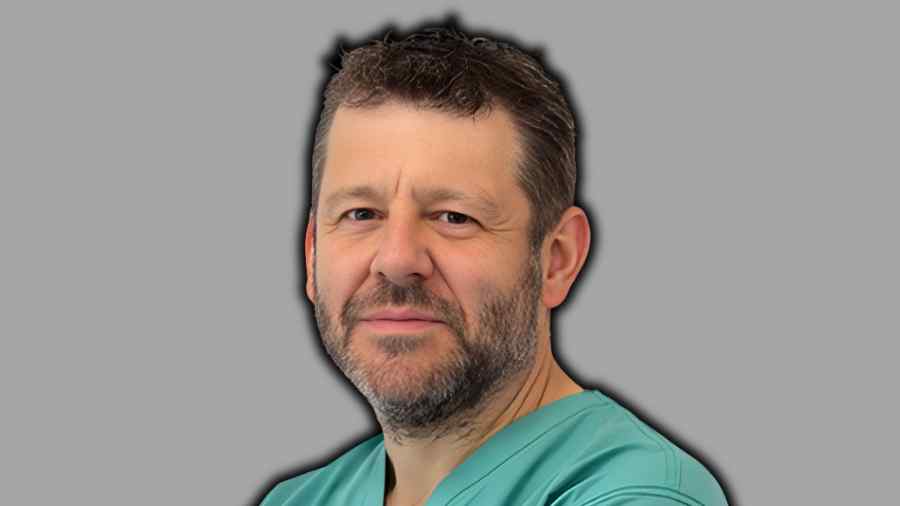
In the realm of ophthalmology, few names carry as much respect and influence as Gus Gazzard. Renowned globally for his groundbreaking research in glaucoma and cataract surgery, Professor Gazzard has become a symbol of innovation, precision, and compassionate patient care. With decades of experience and leadership at some of the world’s most prestigious eye institutions, his work has reshaped the understanding and treatment of glaucoma, improving the quality of life for countless patients across the globe.
Born with a deep curiosity for science and medicine, Gus Gazzard’s journey to becoming one of the foremost authorities in ophthalmology is a story of dedication, intellect, and vision in every sense of the word. As both a surgeon and a scientist, he has successfully bridged the gap between clinical excellence and academic research, making profound contributions to the way eye diseases are diagnosed, managed, and treated.
Table of Contents
ToggleEarly Life and Academic Background
Gus Gazzard’s early years reflected an intense fascination with the human eye — one of the most complex organs in the body. After completing his early education with distinction, he entered the University of Cambridge, where he earned his MBBChir and MA degrees in medicine. His thirst for knowledge led him to pursue further academic excellence, earning an MD and becoming a Fellow of the Royal College of Ophthalmologists (FRCOphth).
During his medical training, Gazzard developed a strong interest in the mechanisms of vision loss and the clinical challenges of glaucoma — a condition often called the “silent thief of sight.” This focus would eventually become the cornerstone of his lifelong research and practice.
Professional Roles and Leadership
Today, Professor Gus Gazzard serves as the Director of Surgery at Moorfields Eye Hospital, one of the world’s leading centres for ophthalmic care and research, located in London. At Moorfields, he leads a team of highly skilled surgeons and researchers dedicated to advancing surgical standards and improving patient outcomes.
In addition to his clinical leadership, Gazzard holds the position of Professor of Ophthalmology (Glaucoma Studies) at University College London (UCL). His academic role allows him to mentor young ophthalmologists, contribute to pioneering studies, and collaborate with global researchers in developing new treatment modalities for eye diseases.
His dual appointment — in both clinical and academic spheres — underscores his ability to translate scientific findings into practical medical advancements. It is this integration of theory and practice that has made Gus Gazzard a pivotal figure in the transformation of modern ophthalmology.
The LiGHT Trial: A Landmark in Glaucoma Treatment
One of the most remarkable achievements in Professor Gazzard’s career is the LiGHT Trial (Laser in Glaucoma and Ocular Hypertension), for which he served as Chief Investigator. This landmark study revolutionised the treatment of glaucoma by demonstrating that selective laser trabeculoplasty (SLT) could serve as a safe, effective, and first-line alternative to traditional eye drops for managing the disease.
Prior to this study, the common practice for treating open-angle glaucoma was to prescribe medicated eye drops to reduce intraocular pressure (IOP). However, long-term compliance with medication often proved challenging for patients, leading to variable results. The LiGHT Trial showed that SLT not only offers comparable — and in many cases superior — results but also reduces dependency on daily medication and its potential side effects.
The trial’s findings were widely praised and cited in ophthalmic journals worldwide. They prompted a shift in international treatment guidelines, positioning laser therapy as an early and viable option for glaucoma management. This breakthrough reinforced Professor Gazzard’s reputation as an innovator willing to challenge outdated norms for the benefit of patients.
Contributions to Glaucoma Research
Beyond the LiGHT Trial, Professor Gazzard’s research portfolio spans numerous aspects of glaucoma and cataract care. He has led and co-authored multiple randomised controlled trials exploring optimal treatment pathways, surgical outcomes, and public health implications of eye diseases. His studies often aim to identify cost-effective, accessible, and long-term solutions — particularly for ageing populations where glaucoma prevalence is on the rise.
Among his research themes are:
-
The role of minimally invasive glaucoma surgeries (MIGS) in reducing intraocular pressure.
-
The impact of laser-based therapies on long-term visual outcomes.
-
Innovations in cataract surgery techniques that complement glaucoma treatment.
-
Socioeconomic studies assessing the burden of blindness and the need for preventive screening programmes.
By combining rigorous clinical data with compassionate healthcare philosophy, Gazzard’s work ensures that research outcomes translate into real-world benefits for patients, healthcare systems, and policymakers alike.
Academic Excellence and Mentorship
Professor Gazzard is deeply committed to academic mentorship. At UCL, he plays an instrumental role in guiding medical students, trainees, and junior doctors through the complexities of ophthalmic science. His lectures are known for their clarity, depth, and practical relevance — inspiring the next generation of eye specialists.
He frequently presents at international conferences and contributes to leading ophthalmic journals, where his insights help shape modern approaches to glaucoma treatment and research. His work has received recognition from professional bodies around the world, and his published papers have been cited extensively in both clinical and academic contexts.
Vision for Global Eye Health
Gus Gazzard’s vision extends far beyond the walls of Moorfields Eye Hospital. He is a strong advocate for global eye health, believing that access to quality ophthalmic care should not be limited by geography or income. Through various research collaborations and outreach initiatives, he has worked with international partners to develop low-cost, high-impact strategies for preventing blindness in developing nations.
He has consistently spoken about the importance of early detection and intervention, particularly for diseases like glaucoma that often progress without symptoms until vision loss becomes irreversible. His global advocacy reflects his belief that science and compassion must work hand in hand to create lasting change.
Approach to Patient Care
Despite his numerous academic and professional accolades, Professor Gazzard remains deeply committed to patient-centred care. His philosophy is rooted in empathy, transparency, and trust — values that have earned him the respect of both his peers and patients.
He is known for spending time understanding his patients’ unique concerns and explaining complex medical procedures in simple terms. Whether performing intricate glaucoma surgeries or routine cataract operations, his meticulous approach ensures the highest possible standards of safety and success.
His patients often describe him as approachable, reassuring, and profoundly knowledgeable — qualities that distinguish him as a physician who combines science with humanity.
Recognition and Awards
Over the years, Professor Gazzard’s contributions have been recognised with numerous awards and honours from medical and academic institutions. These accolades reflect not just his individual brilliance but also his enduring influence on the field of ophthalmology.
He has been featured in leading medical publications, invited to keynote international symposiums, and continues to serve on advisory boards that shape the future of eye health policies.
Future Outlook
As medical technology continues to evolve, Professor Gazzard remains at the forefront of innovation. He is currently involved in exploring artificial intelligence (AI) and machine learning applications in glaucoma diagnosis, aiming to enhance early detection and treatment precision.
His ongoing studies continue to examine how new technologies, when integrated with established clinical expertise, can redefine the future of ophthalmology. With his characteristic blend of research, teaching, and clinical practice, Gazzard’s influence is set to inspire generations to come.
Legacy and Impact
The impact of Gus Gazzard’s career is far-reaching. His work has influenced international treatment guidelines, improved surgical techniques, and helped millions preserve their sight. But beyond his scientific legacy, his true contribution lies in his unwavering dedication to humanity — a commitment to seeing people not just as patients, but as individuals deserving of clarity, dignity, and hope.
From Cambridge classrooms to Moorfields operating theatres, his journey stands as a testament to what is possible when intellect meets empathy, and when science serves society. Professor Gus Gazzard is not just a leading ophthalmologist — he is a visionary redefining how the world sees.
Conclusion
In summary, Gus Gazzard has transformed the landscape of modern ophthalmology through his leadership, research, and compassionate patient care. His pioneering work in glaucoma treatment, particularly through the LiGHT Trial, has changed global medical standards and brought light — quite literally — to countless lives. His legacy continues to inspire both medical professionals and patients alike, reminding the world that vision is not merely about seeing, but about believing in the power of innovation and humanity combined.



